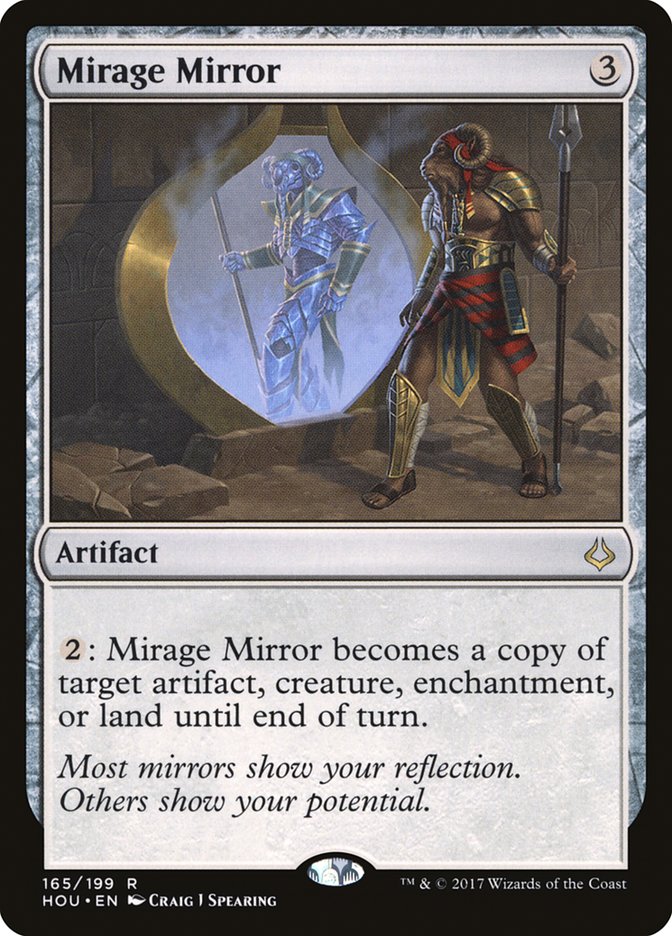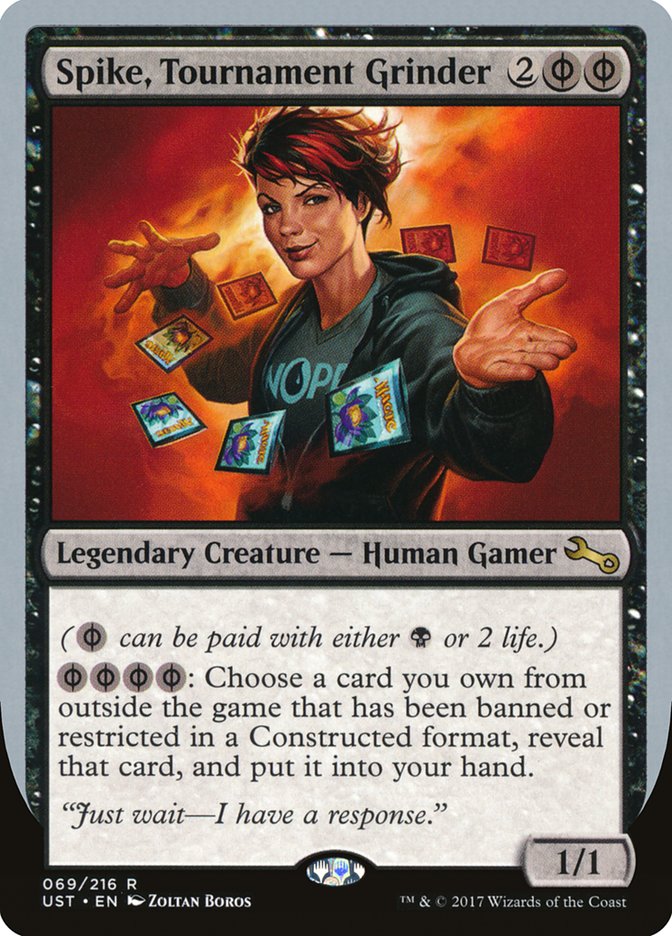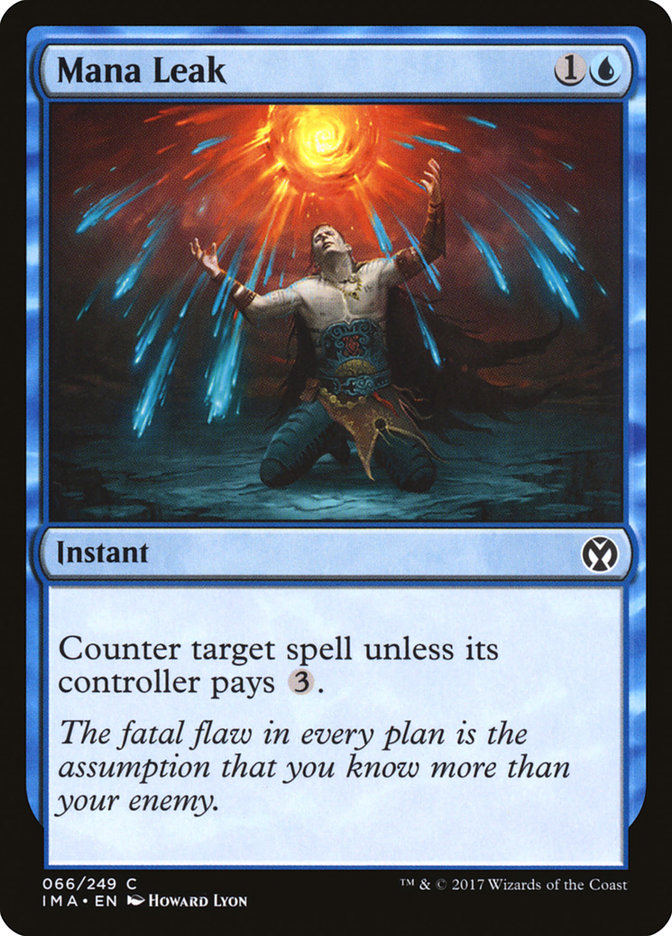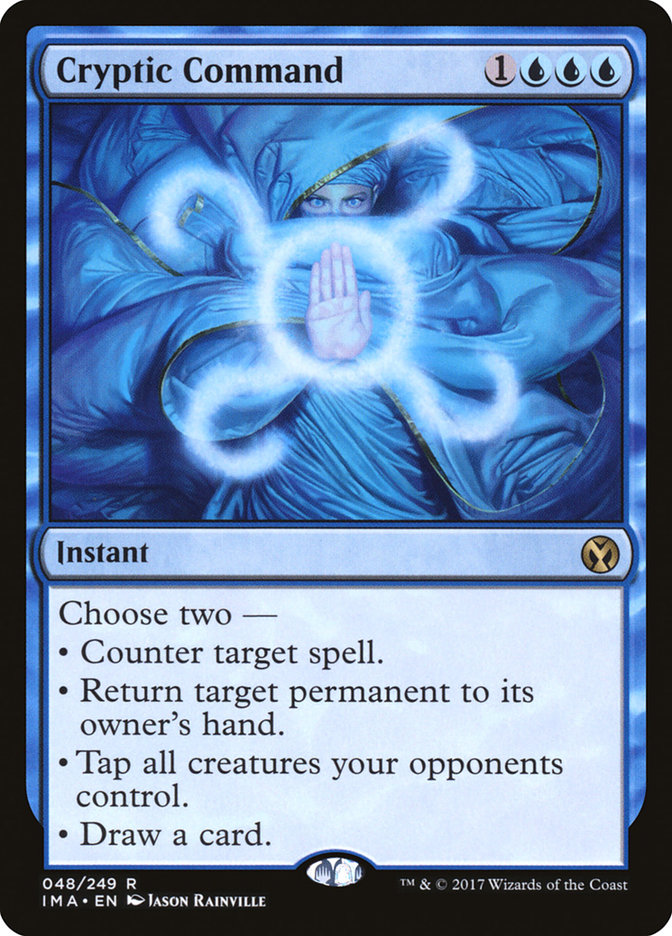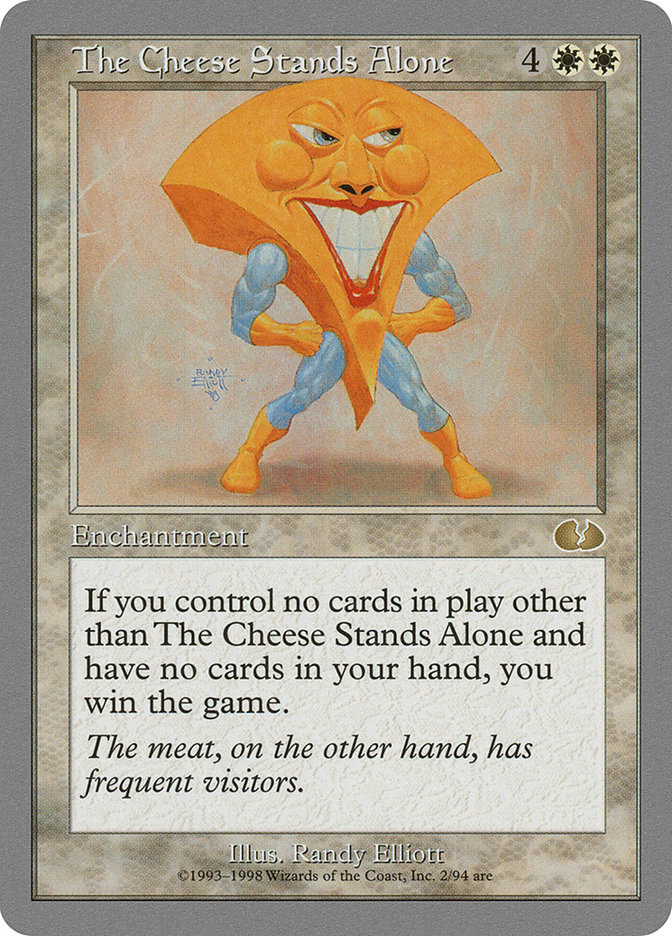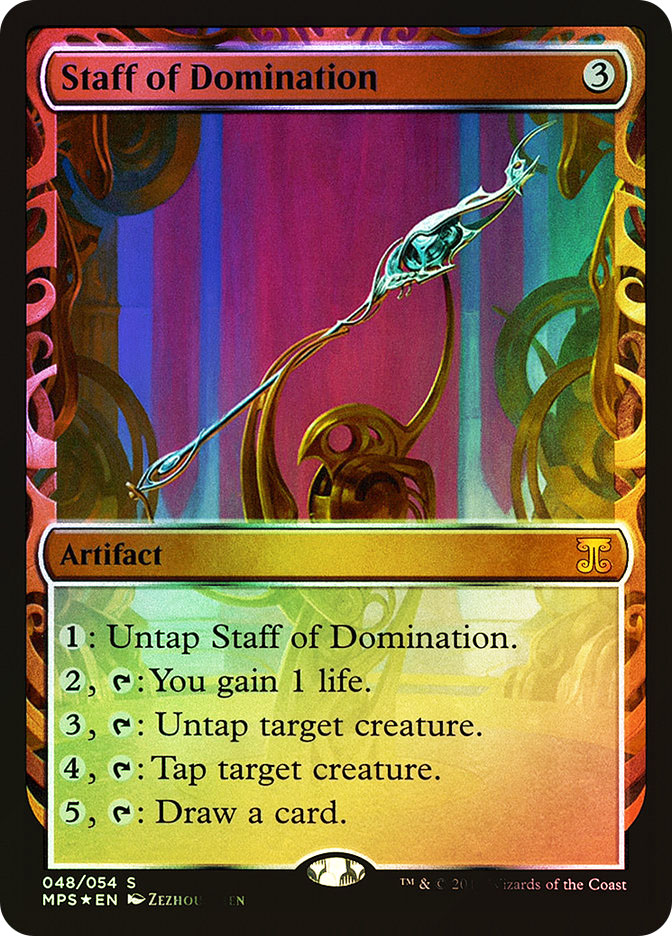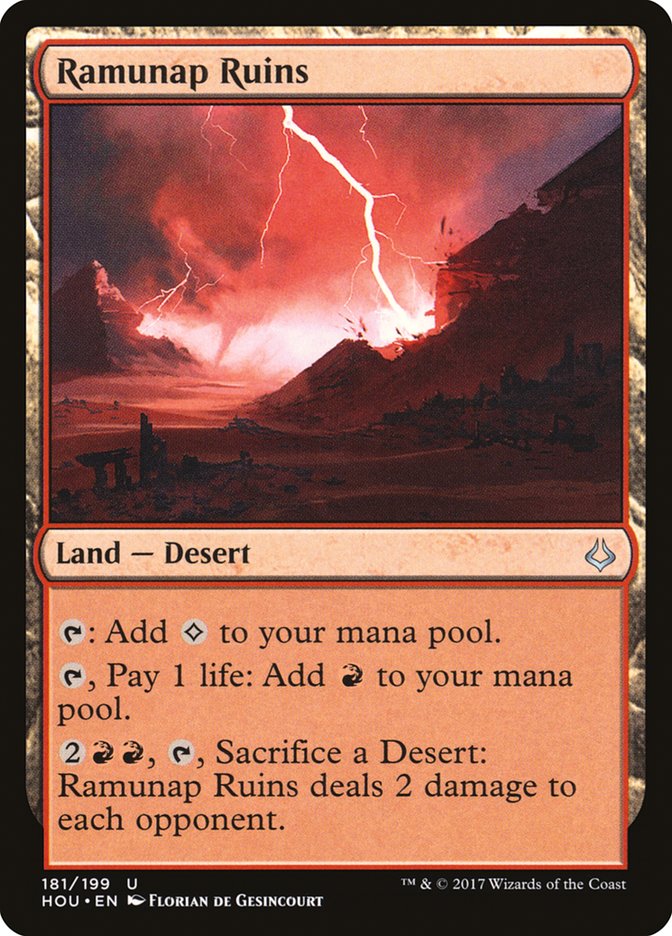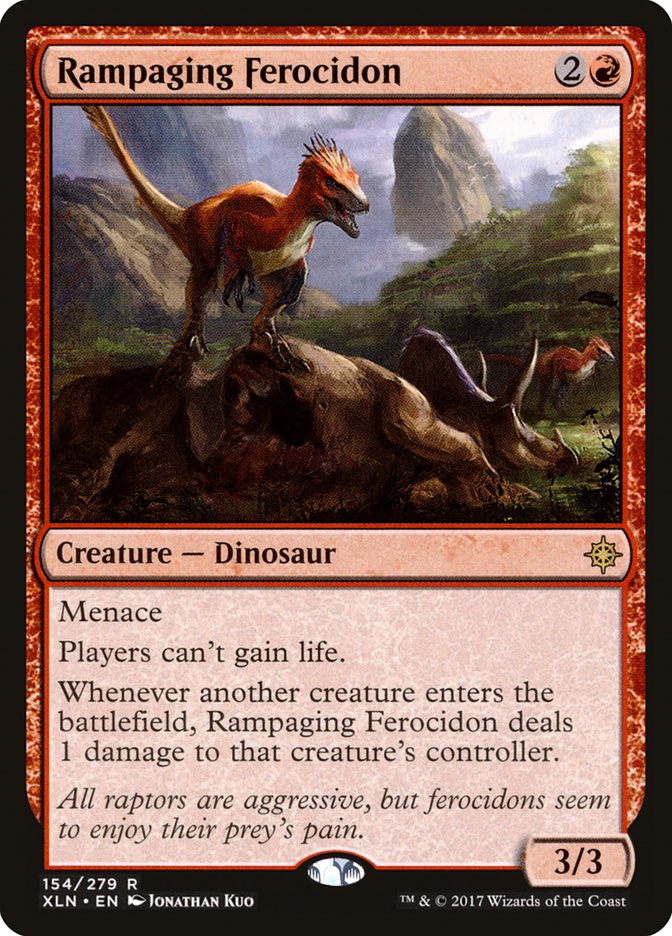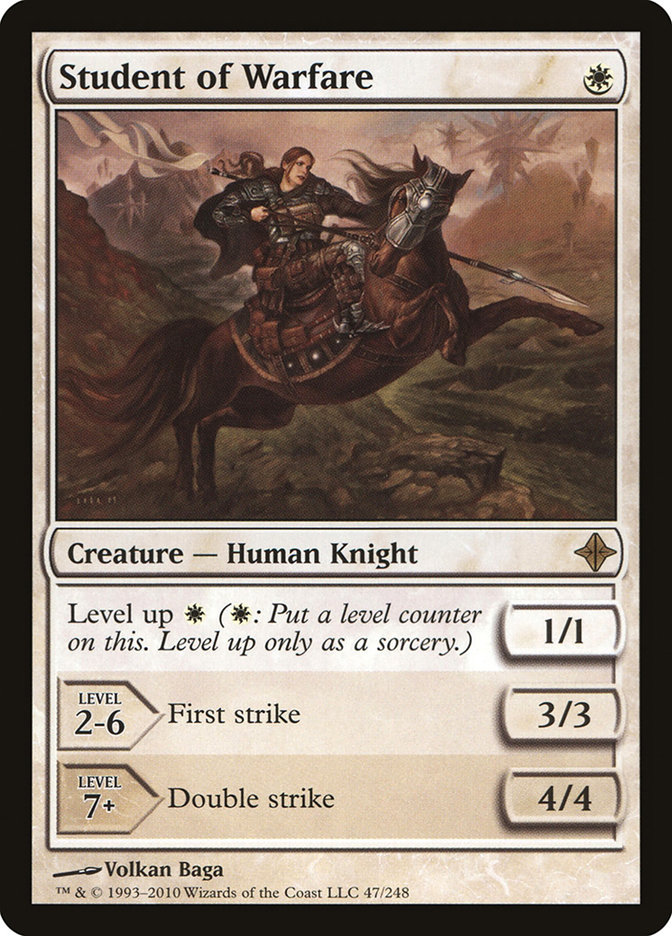Several moons ago, I had a conversation that would change my Magic life.
The weird part is, I didn’t even play Magic then!
It was about ten years ago, when I was a young one in her first year of high school. I didn’t play Magic, but I did play a different competitive card game, one that I won’t name for fear of a hostile comments section. I wasn’t good at that game, but still did the whole “travel a couple hours for Regionals” (think old-style PTQ) every few weeks thing with a group of friends.
One time on the way back from a tournament two of us had gone fairly deep into before falling short, we stopped at the house of a titan of the local scene to chat a bit about how it went. This guy was older than us, a successful adult who played in his spare time and hadn’t been able to make it this particular weekend. He was also much better than any of us, and somewhat idolized by us. Maybe that’s why his words have stuck with me so long.
“Well, when you’re playing someone who is playing all the same cards as you, you can’t expect to win much more than half the time.”
At the time, those words didn’t mean very much to me. I was a poor high school student who wasn’t particularly skilled at the game. I didn’t have access to the best deck anyway, so I rarely had to worry about mirror matches.
At least, the literal meaning of the words didn’t apply to me. I still took something away from them, something simple, a question I realized I should be able to answer: Why do I win?
Prior to this, I just showed up to tournaments hoping to get lucky. I just kind of did my thing the way I always did it and hoped that things would go my way eventually. There’s nothing intrinsically wrong with this attitude, but I don’t believe it to be consistent with an identity as a competitive player.
Nowadays, I like to think about my winner’s story. The thing I’ll point to when people ask me how I won instead of simply bragging about getting lucky. Something I got right that others didn’t. Something I was particularly good at, or something I knew. Something about me as an individual that set me apart from the field and gave me a competitive edge.
Listen up: this is going to be the most important bit of this article. Knowing why you win has nothing to do with being entitled to win or deserving to win. You can be 95% to win a match and still lose. In fact, that should happen one time in twenty. Your opponent is a thinking human too. Maybe they approach the matchup in a way they’ve discovered that takes them from 1% to win to 5% to win. It’s super-awesome that they found a plan to gain a tiny bit of equity and it ended up mattering. How can you be mad?
Or maybe they sacrificed a lot of their sideboard cards for this matchup and took themselves from 20% to 5% to win. They didn’t think they’d see a lot of it, and either they were wrong or got unlucky. Either way, the fact that they squeaked out a win anyway is great for them, and while it’s rough for you, I’m sure you’ve been in that spot before. How can you be mad?
Or maybe they just played their cards as they drew them and very clearly had no idea what was going on. They won anyway because you mulliganed to four and they finally realized they could lethal you the turn before you were going to turn things around. The fact that this scenario is possible is why Magic is so popular, why so many people love this game and spend their time and money on it. How can you be mad?
Developing a Specialty
All right, I’m done moralizing. It’s my stance that if you style yourself as a competitive player, you should have a plan for winning. If you register Temur Energy or some other “best” deck, you should have some reason in your head that sets you apart from the horde of players doing the same thing. Maybe you have an innovative plan for the mirror, or maybe you’re really good at playing against one of the deck’s bad matchups. It can be anything you want, but it should be something.
The problem with this in Magic is that all the effort your pour into a sideboard plan, a deck, or even a format is only relevant for so long, and it’s seldom much time. Magic’s ever-changing nature is one of its biggest strengths, but it can be very frustrating as an aspiring competitive player to finally figure things out and then have that understanding invalidated due to a set release or even a simple shift in the metagame.
To combat this, many players develop specialties. The most common kind of specialty is the archetype player.
Creatures (15)
Lands (21)
Spells (24)
- 1 Rancor
- 1 Might of Old Krosa
- 4 Vines of Vastwood
- 4 Groundswell
- 2 Twisted Image
- 1 Mutagenic Growth
- 2 Apostle's Blessing
- 4 Gitaxian Probe
- 1 Dismember
- 1 Wild Defiance
- 3 Become Immense
Sideboard

Creatures (20)
Planeswalkers (4)
Lands (25)
Spells (11)

Creatures (28)
- 4 Arcbound Ravager
- 4 Ornithopter
- 3 Master of Etherium
- 4 Steel Overseer
- 3 Memnite
- 2 Etched Champion
- 4 Signal Pest
- 4 Vault Skirge
Lands (17)
Spells (15)

We probably all know a player who is always on some control strategy. No matter the format, you will always find them playing long games of Magic and winning with one of their two to four win conditions after not letting their opponent do anything for twenty turns. Other players are always running the most aggressive deck they can get their hands on.
The advantage of doing this is that, by spending all of your Magic time doing the same kind of thing, you naturally get better at doing that thing. A player who only plays control will become very good at playing control given enough time. They will enter every tournament with a baseline competitive advantage of being good at playing control, and will develop plans for mirrors and troubling matchups more quickly and effectively than other players, thus enhancing their edge.
There are a few downsides, though. Sometimes an archetype just isn’t good. It’s rare, but it happens. Control is having a bit of a renaissance now in Modern, but for a long time the archetype was almost nonexistent in the format.
More importantly though, we don’t really learn archetypes. What we learn are playstyles, and playstyles within an archetype can vary wildly. Classically, control plays a very reactive draw-go game, and a lot of control experts are great this. A lot of these same players had a rough Standard format during the time of Esper Dragons because that deck, despite being control, demanded a more assertive posture a good deal of the time. Similarly, Ramunap Red can be a challenging pick-up for dedicated aggro players, as a lot of its draws are slower. Indeed, a big strength of the deck is that the card Ramunap Ruins mitigates flood, enabling a high-land-count aggressive deck.
True Niches
But there’s a more fundamental problem with becoming an archetype specialist than your skills sometimes not being relevant. It’s too broad of a distinction. If our goal is to have an edge on the field, being a control specialist playing a control deck isn’t enough. There are lots of control specialists. In a 500-player tournament, being a control specialist takes your cohort from a group of 500 to a group of around 50. What sets you apart within that?
In looking for the things you want to lean on as your edge, work from the bottom up. Find the smallest, most granular piece of Magic that you think you truly excel at. Find strategies that use that piece of Magic the most and employ those. Find decks that execute those strategies and play them.
One of the things I pride myself on in Magic is playing against control decks. This is a skillset built up from small aspects of Magic: threat sequencing and leveraging mana choke points, primarily. Because I think this is something I am good at, I go out of my way to seek out decks in formats that have bad control matchups and play those.
If Deck X has a bad matchup against Deck Y, Deck Y is one of the reasons not to play Deck X. If you think you are excellent at playing Deck X against Deck Y, that can be your competitive edge. Compared to other pilots of Deck X, you are more likely to escape matches against Deck Y unscathed, greatly increasing your chances of winning the tournament, as many other Deck X pilots will drop off as they play against Deck Y. Finding a bad matchup you are good at it is one of my favorite ways to pick a deck for a format.
The great thing about concentrating on small pieces of Magic you are good at is that there are probably a few of them. When you focus on being an aggro player, if there’s not a good aggro deck, you’re probably out of luck. It’s not like you are also a specialized control player; those distinctions are too broad to easily focus on both of them. But when there’s not a control matchup to exploit, I can find a midrange deck where my ability to know exactly when to turn the corner will be put to good use.
There are lots of things you could be good at in Magic. If you think you are great at mulliganing, maybe you should look into playing a deck like Tron. If you always have a read on your opponent, maybe Infect is the kind of deck you should be playing. No matter what the thing in Magic you are great at is, there’s a way to efficiently make use of it.
How Not to Go Your Own Way
Sometimes, you’ll be wrong about these things. You played Temur Energy because your matchup against Ramunap Red at your local store was out of this world, but when you got to the SCG Tour you found yourself losing more often than not. You thought you had a great plan for the mirror, but when you tried to put it into practice, it turned out there was a glaring hole in it and your anticipated mirror edge was nowhere to be found.
In a lot of ways, playing Magic is a constant growth experience. You should always be learning and, maybe more importantly, critically examining all the things you think you know about the game. Everyone who is good at this game at some point has had to unlearn something they thought they knew and then relearn it. Some of us have then had to unlearn the new version and learn it a third or maybe even a fourth time.
So sure, maybe your sideboard plan was no good. You weren’t as good at playing against Ramunap Red as you thought. It’s not a big deal, unless you make it a big deal. If you refuse to accept that you were wrong and continue stubbornly entering tournaments with competitive edges that don’t exist, you will just grow more and more frustrated with what you perceive to be variance but is actually just you being wrong.
Refusing to accept that you were wrong generally comes from really liking the thing that you were wrong about. I see it in sideboard plans all the time. An idea is just so clever, so neat, so perfect, that it hurts when it doesn’t work. Dismissing that idea as bad is painful, but it has to happen. Similarly, accepting that you aren’t actually skilled with a deck or a matchup can be a blow to your pride, but accepting that these things aren’t true is the first step towards making them true.
The funny thing about all of this is that, looking back, those words that sparked this philosophy in me were advocating the wrong thing. Originally, they were spoken in support of playing off-the-wall decks to avoid playing mirror matches. This is a direction a lot of players go, and one I vehemently disagree with.
There are ways to find edges in mirror matches. There are ways to find edges as a pilot of the most popular deck. It’s not even that difficult.
You just have to figure out what you’re good at, and go from there.


